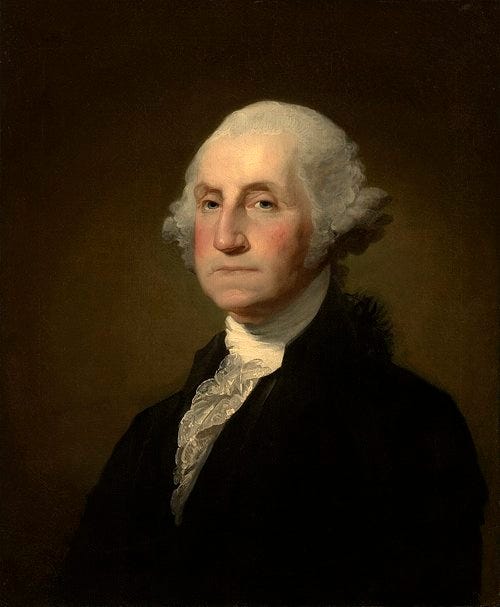Proclamation: Presidential Rankings!
President Truman celebrated the end of 1946 by proclaiming the end of hostilities in World War II. As we window our presidential rankings, come read about #3 and #2.
With God's help this nation and our allies, through sacrifice and devotion, courage and perseverance, wrung final and unconditional surrender from our enemies.
Proclamation 2714
President Harry S. Truman
December 31, 1946
And with that, the cessation of hostilities of World War II came to an official end.
In August 1945, Turman ordered atomic bombs to be dropped on Japan, the second one accelerating their surrender on September 2. The Germans had surrendered in May, sparring a few bombs of their own.
The aftermath of World War II was expansive. Colonial empires diminished, and the rise of two global powers took their place. It's like a Star Wars movie. Before Disney bought them and turned it all into garbage.
Over the following year, boundaries in Europe would be redrawn, Japan would draft a new Constitution, and many people would be tried as war criminals. Picking up the pieces of war when 3% of the world's population died took some time. The Marshall Plan would continue for another 15 years. Former allies quickly became adversaries.
In the end, Europe would get better at basketball at a quicker pace than the U.S. would in global football. That is really a shame.
Okay, let's get to the next round of rankings, featuring the man in charge for most of the war and some other guy.
3: Franklin Delano Roosevelt
32nd President
2017 Ranking: 3
2019 Ranking: 3
2021 C-SPAN Ranking: 3
Term – March 4, 1933– April 12, 1945
The Good:
FDR's legacy is simple: The power of the United States Government can be a source of good. He pulled the country out of the Great Depression with his New Deal policies, while his predecessor thought the Red Cross should do it. FDR led us through World War II, although, unfortunately died before he could conclude it personally and ride off into the sunset.
The Bad:
FDR had a habit of sleeping with women who weren't his wife, and he supposedly even had an affair with the queen of Norway. Granted, it's not policy decisions, but it is gross. He also shoved Japanese Americans into camps during the war because all Japanese people were bad back then.
The Okay:
FDR caught polio as an adult, and this condition confined him to a wheelchair for the rest of his life. He also decided it would be a good idea to chain smoke. In 1944 he went to Bethesda Medical Center and was told he had a laundry list of alignments. It's understandable, considering what he had been through. He was instructed to rest, and perhaps maybe not run again. Instead, he continued to run that fall, and he won again, earning 53% of the vote. He was dead months later, at the age of 63.
Why did I rank him here?
FDR is probably one of three presidents who have a legitimate shot at the top. In 2000 the C-SPAN history nerds ranked him second, ahead of Washington, but just below Lincoln. As the longest-serving president in American history, his impact has spanned many generations, from LJB to the Reagan Revolution, a direct response to combat FDR's expansion of government programs.
2: George Washington
1st President
2017 Ranking: 1
2019 Ranking: 2
2021 C-SPAN Ranking: 2
Term – April 30, 1789 – March 4, 1797
The Good:
Being the first at something allows you to establish precedents, and Washington knocked all of them out of the park. The most significant accomplishments were providing teeth to the Constitution, establishing a robust financial system for the nation, and leaving office after two terms.
The Bad:
Washington signed the first Fugitive Slave Act of 1793, which allowed slave owners to enter other states to recapture escaped slaves. This obviously led to the kidnapping of freed slaves because we were terrible people back then.
The Okay:
Washington's farewell speech is a common reference point when discussing his legacy. In it, Washington espoused his countrymen not to fall into partisan bickering. Whenever we lament current affairs, we revert to Washington's words of caution that political parties seek to distract government and lead to riots and insurrection. Boy did he ever nail that.
The thing is, Washington put himself in the middle of such bickering. He supported pretty much everything that came out of Alexander Hamilton's mouth, which would turn Thomas Jefferson and his supporters off. The Jay Treaty sealed the deal that we would have at least a two-party system because how else would this have worked?
Why did I rank him here?
When I first put this ranking to an excel spreadsheet over four years ago, I put George Washington at the top. I thought that we don't have a long list of successors if he wasn't the first. As I mentioned in the previous lesson, Washington's accomplishments are immeasurable.
We are down to number 1. It will be less dramatic now that you know who #3 and #2 are. Share your thoughts on how we are doing below!




